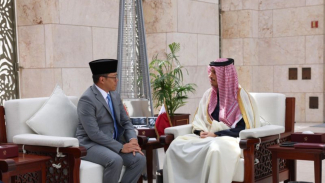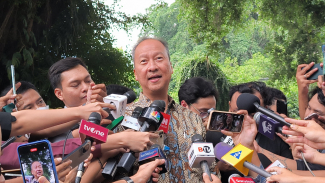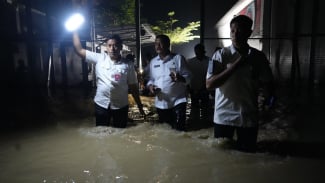44 Hospitals to Assist Health and Wellness Tourism in Indonesia
- Pixabay/ condesign
VIVA – A total of 44 internationally accredited hospitals, according to data of the Indonesian Hospital Association (PERSI) in 2021, have the potential to assist in developing health and wellness tourism in Indonesia.
"Several community health centers, traditional health centers, and health service facilities have also been supported by trained human resources, who are ready to realize health tourism," Deputy Minister of Health Dante Saksono Harbuwono noted while attending the 2022 International Wellness Tourism Conference & Festival (IWTCF).
The certifications, among others, were issued by Joint Commission International (JCI), Accreditation Council of Health Care Standard, and Hospital Accreditation Commission (KARS).
Meanwhile, the Health Ministry contributes to improving health and wellness tourism in Indonesia by conducting health transformations to improve the quality of services for tourists.
ilustrasi rumah sakit
- vstory
"The transformation focuses on developing a health system that can provide the best service for the community. Thus, it can compete with health services in other countries,” the deputy minister stated.
In addition, various innovations continue to be developed, for instance, by providing healing tour packages comprising nature, artificial, shopping, and culinary tourism.
"Currently, several hospitals in Indonesia have provided traditional herbal medicine outlets and traditional massage services to attract tourists to experience wellness tourism in Indonesia," Harbuwono stated.
The ministry has also developed digital health information system services, online health services, robotics in medical treatment, and telemedicine to shorten the service time.
It also strives to provide affordable services of good quality through health technology assessments to optimize health assets.
"Medical tourism not only has a positive impact in increasing the country's foreign exchange but also improves the quality of the health sector, increases the number of professional medical workers, and contributes to the development of tourism destinations," the deputy minister remarked.
Hence, his side also conducts equitable distribution of health workers and increases their competence by providing sustainable training; assists in preparing institutional health tourism in hospitals and priority health facilities; as well as facilitates the designation of hospitals as medical tourism service providers.
The strategies are implemented using the principles of good hospital governance and good clinical governance supported by adequate information and communication systems. (ant)
























